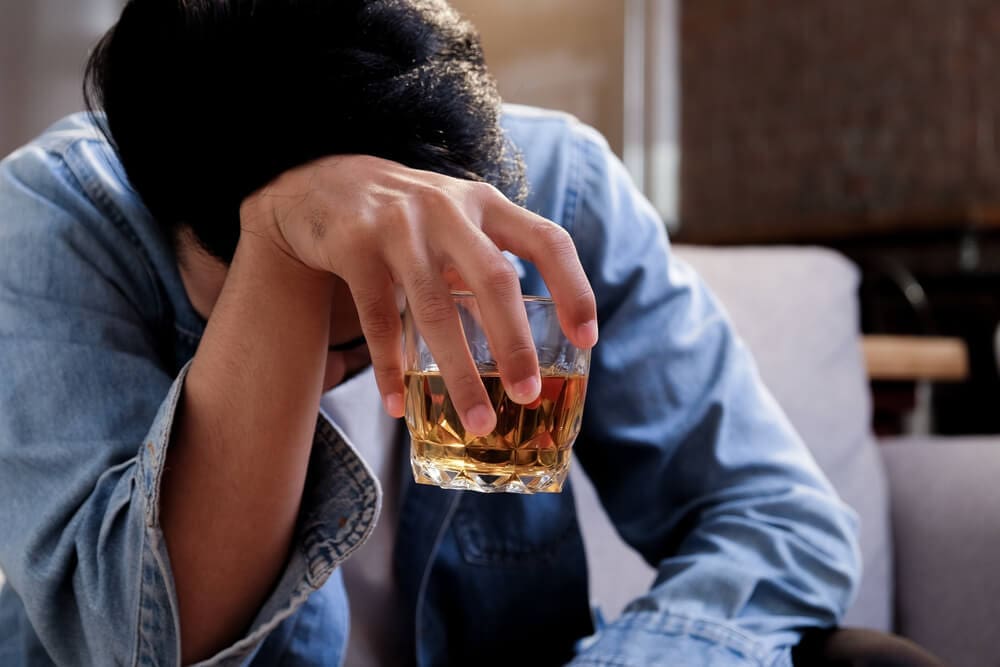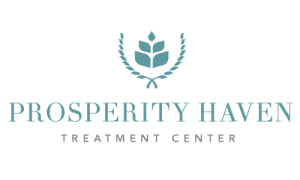Drug and Alcohol
Detox in Ohio
Build Your Foundation for Recovery
Where You Begin Building a
Foundation for Recovery

Drug and Alcohol Detox at Prosperity Haven: Our Mission
At Prosperity Haven, we believe in treating all aspects of addiction. Long-term substance abuse has an impact on one’s physical, mental, emotional, and spiritual well-being, which is why we take a comprehensive approach to recovery, using a variety of evidence-based treatment options and holistic therapies.
Beginning with drug and alcohol detox and ending with a lifetime alumni brotherhood, our effective treatment approach is specifically designed to address your individual needs and goals while moving at a pace that allows you to take the time you need to heal and grow. Like the majority of inpatient rehab centers, Prosperity Haven does not have an alcohol and drug detox program on-site. However, we partner with some of the best detox services in Ohio to ensure your first experience in substance abuse treatment sets you up for continued success, helping you make a seamless transition to our residential inpatient program.
At Prosperity Haven, we’re committed to supporting you or your loved one throughout each step of the recovery journey, which for many clients will begin with drug and alcohol detox.
Overview: Ohio Substance
Abuse Detox Treatment
 At Prosperity Haven, we believe in treating all aspects of your addiction. Long-term substance abuse has an impact on your physical, mental, emotional, and spiritual wellbeing, which is why we take a comprehensive approach to recovery, using a variety of evidence-based treatments and holistic therapies in combination.
At Prosperity Haven, we believe in treating all aspects of your addiction. Long-term substance abuse has an impact on your physical, mental, emotional, and spiritual wellbeing, which is why we take a comprehensive approach to recovery, using a variety of evidence-based treatments and holistic therapies in combination.
Beginning with Drug and Alcohol Detox and ending with a lifetime Alumni brotherhood, our step-down treatment approach is specifically designed to address your individual needs and goals, while moving at a pace that allows you to take the time you need to heal and grow. We’ve partnered with some of the best detox facilities in Ohio to ensure your first experience in treatment positions you for continued success and helps you make a seamless transition to our Residential Inpatient Program.
At Prosperity Haven, we’re committed to supporting you throughout each step of your recovery journey, which for many clients will begin with drug and alcohol detox.
What is Drug and Alcohol Detox?
Drug and Alcohol Detox Services in
the Cleveland Area
The first step in addiction recovery is to cleanse your body and rid your system of harmful substances. Drug detox and rehab facilities allow you to establish a healthy foundation so you can have the right mindset as you start building your recovery toolkit. Drug detox is the phase that most clients start rehab with – it provides an opportunity to start fresh, which is why it’s an important first step towards restoring your life from drug addiction.
If you need to undergo drug detoxification when you begin your journey at Prosperity Haven, we’ll refer you to one of our affiliated medical drug and alcohol detox rehab centers in the Cleveland area. There you’ll have access to around-the-clock medical supervision, experienced support, and a comfortable environment to get clean safely and effectively. In a drug detox and rehab center, your body will heal physically over a 2-10-day period as you begin to regain your energy and prepare your mind for the task ahead. Our goal is to make sure you walk into residential programming with the strength and confidence you need to take on the daily challenges of addiction recovery.
How to Know if a Drug and Alcohol Withdrawal Program is Right for You
Most people need constant support and medical intervention during the withdrawal phase from drugs and alcohol and the other initial stages of the recovery process. Simply put, medically assisted detox is an ideal choice because you won’t have to do it alone. Your medical detox will grant you access to expert medical personnel and the 24/7 care and support you need to stay safe, and comfortable and reduce the risk of relapse.
Supervised detox facilities provide a controlled environment where a healthcare provider can create an individualized detox plan. This may include the assistance of medical detox drugs to help you wean off of abused drugs or alcohol and cope with drug cravings. Methadone and buprenorphine, for example, are well-known detox medications used for withdrawal management from opioid use disorder.
Detox center staff members will taper the medication-assisted treatment schedule to help reduce the amount of addictive substances in your system over a safe period of time. Additionally, this professional setting surrounds you with a team of licensed nurses who will regularly check your vitals and assess your overall comfort and wellness.
Some commonly abused substances that could benefit from medically assisted drug detox include:
- Alcohol
- Opioids & Opiates (Heroin, Fentanyl, Hydrocodone, Oxycodone, Morphine, Etc.)
- Benzodiazepines (Xanax, Valium, Clonazepam, Lorazepam, Etc.)
- Stimulants (Cocaine, Crack, Crystal Meth, Adderall, Speed, Etc.)
Drug and Alcohol Withdrawal Symptoms
The mental and physical effects that you experience when you detox from drugs and alcohol are called “withdrawal”. Acute withdrawal is the physiological and physical dependence your brain feels when a substance that has been repeatedly abused is no longer present. This leaves the brain and the body feeling abnormal and forced to adjust to the absence of the addictive substance, resulting in symptoms of withdrawal. The severity of the symptoms you feel from withdrawal from substance dependence can vary based on different factors, including, the types of drugs you were using, how long you’ve been using them, your preferred method of use, and any physical or mental health conditions you may have, whether they’re related to your addiction or not. A drug detox center will help you to manage severe withdrawal symptoms. Common side effects and symptoms of withdrawal may include some or all of the following:
PHYSICAL DRUG WITHDRAWAL SYMPTOMS:
- Fatigue
- Nausea; Vomiting
- Fever; Shivering
- Headaches
- Shaky Hands
- Excessive Sweating
- Muscle Aches
- Dizziness
- Hypertension
- Rapid heart rate
- Runny nose
- Sudden high blood pressure
MENTAL DRUG WITHDRAWAL SYMPTOMS:
- Anxiety
- Irritability
- Mood Swings
- Depression
- Suicidal Thoughts
- Trouble Sleeping
- Agitation
- Paranoia
- Restlessness
- Confusion
- Hallucinations
- Delusions
ONLINE TREATMENT APPLICATION
Complete the Form Below to Apply for Treatment Today
"*" indicates required fields
Where Should You Detox? Inpatient Detox vs. Outpatient Detox
Medical Detox Vs.
At-Home Detox


Attempting an outpatient detox from drugs or alcohol on your own can result in a higher risk for relapse, become harmful to your health – and in some cases, become life-threatening. Don’t attempt to detox at home. The safest way to treat withdrawal syndrome is to enter an inpatient detox program under direct supervision. This way, if you begin experiencing any sudden medical issues as a result of the drastic chemical changes that your brain and body undergo during the detoxification process and withdrawal, there will be a medical professional available to help you.
Many people are not able to handle the intense side effects that come from quitting drug use and addictive substances on their own. Even when the physical symptoms are “manageable”, the psychiatric distress may be overwhelming for someone to bear. This physical, mental, and emotional combination of withdrawal will often lead a person to return to a lifestyle that has become comfortable for them — alcohol and drug abuse. Inpatient detox centers will support you throughout the entire withdrawal process.
Due to the added risk factor of delirium tremens, it is especially important to attend a supervised alcohol detoxification facility and avoid trying to quit alcohol addiction cold turkey on one’s own. Besides detox from alcohol use disorder, delirium tremens can also result from benzodiazepine withdrawal.
- Alcohol
- Opioids & Opiates (Heroin, Fentanyl, Hydrocodone, Oxycodone, Morphine, Etc.)
- Benzodiazepines (Xanax, Valium, Clonazepam, Lorazepam, Etc.)
- Stimulants (Cocaine, Crack, Crystal Meth, Adderall, Speed, Etc.)
 Why Choose Medically-Assisted Detox?
Why Choose Medically-Assisted Detox?
Simply put – medically-assisted detox is the best choice because you won’t have to do it alone. You’ll have access to expert medical personnel and the 24/7 care and support you need to stay safe, comfortable, and reduce the risk for relapse.
Detox facilities provide a controlled environment where a physician can create an individualized detox plan that may include the assistance of medications to help you wean off of drugs or alcohol, as well as a tapering schedule that helps reduce the amount of addictive substances in your system over a safe period of time. Additionally, this professional setting surrounds you with a team of licensed nurses who will regularly check your vitals and assess your overall comfort and wellness.
Some commonly abused substances that may require medically-assisted detox include:
- Alcohol
- Opioids & Opiates (Heroin, Fentanyl, Hydrocodone, Oxycodone, Morphine, Etc.)
- Benzodiazepines (Xanax, Valium, Clonazepam, Lorazepam, Etc.)
- Stimulants (Cocaine, Crack, Crystal Meth, Adderall, Speed, Etc.)
 WHAT ARE THE RISK OF DETOXING ALONE?
WHAT ARE THE RISK OF DETOXING ALONE?
Attempting a drug or alcohol detox on your own can result in a higher risk for relapse, become harmful to your health — and in some cases, become life-threatening. The safest way to detox is under direct supervision. This way, if you begin experiencing any sudden medical issues as result from the drastic chemical changes that your brain and body undergo during detox and withdrawal, there will be a medical professional available to help you. Many people are not able to handle the intense side effects that come from quitting addictive substances on their own, and even when the physical symptoms are “manageable” – the psychiatric distress may be overwhelming for someone to bear. This physical, mental, and emotional combination of withdrawal will often lead a person to return to a lifestyle that has become comfortable for them — abusing drugs and alcohol.


Detox is Only the First Step to Recovery
While it’s a giant step in the right direction when an individual stops abusing drugs and alcohol, the reality is that becoming “abstinent” is only the first step towards “sobriety.” Experts in substance use disorder and addiction medicine emphasize that a program that stops after detox isn’t sufficient for the vast majority of clients in the process of recovery. It takes an extended period of time in substance abuse treatment – and after – to heal and experience complete physical, mental, emotional, and spiritual wellness. For this reason, we understand that the biggest differentiator between abstinence and sobriety is that one can be forced upon you and the other requires a life-long commitment to achieve.
At Prosperity Haven, we help you build your strength and prepare you for the lifetime journey in recovery through our proven step-down addiction treatment program. No matter where you are when you enter our program, we promise to meet you where you’re at and give you the structure and support you need from the start.
 DETOX IS ONLY THE FIRST STEP TO RECOVERY
DETOX IS ONLY THE FIRST STEP TO RECOVERY
While it’s a giant step in the right direction when an individual stops abusing drugs and alcohol, the reality is that becoming “abstinent” is only the first step towards “sobriety.” Experts in addiction medicine emphasize that a program that stops after detox isn’t sufficient for the vast majority of clients in recovery because it takes an extended period of time in treatment — and after — to heal and experience complete physical, mental, emotional, and spiritual wellness. For this reason, we understand that the biggest differentiator between abstinence and sobriety is that one can be forced upon you and the other requires a life-long commitment to achieve. At Prosperity Haven, we help you build your strength and prepare you for the lifetime journey in recovery through our proven step-down addiction treatment model. No matter where you are when you enter our program, we promise to meet you where you’re at and give you the structure and support you need from the start. It begins with getting to know you on a deep level and working with you to create an individualized plan for recovery. We want to help you identify the source of your addiction and tackle the core issues that are fueling it. There will certainly be ups and downs throughout treatment, but we’ll be there to make sure you’re staying on track as we work towards helping you develop the skills that foster a lifetime of sobriety.
Why Choose Prosperity Haven’s Drug and Alcohol Program?
With an 85% long-term sobriety rate, our expert staff prides itself on securing close relationships with local detox centers and following detoxification programs with a thorough and healing rehab process.
Our medical care team will get to know you on a deep level and work with you to design a recovery plan aimed at helping you identify the source of your drug addiction and tackle the core issues that are fueling it. With a maximum capacity of 10 people, our men’s drug and alcohol rehab is the ideal environment to focus on long-term healing. At our Ohio treatment center, you’ll learn the skills and tools to manage everyday triggers. There will certainly be ups and downs throughout substance abuse treatment, but we’ll be there to ensure you’re staying on track as we work towards helping you develop the skills that foster a lifetime of sobriety. With the professional help and relapse prevention support of both our team and our vast alumni network, you’ll also feel the brotherhood that so many of our alumni attribute their long-term recovery to.
Set in the picturesque, green pastures of Chardon, Ohio, our peaceful, distraction-free surroundings are the ideal setting for self-discovery and growth. Our male-only rehab facility features luxurious indoor spaces and beautiful, expansive grounds. Accommodations are homey, comforting, and thoughtfully decorated – specifically designed to promote peer-bonding and relaxation.
Start With Drug and Alcohol Detox and Overcome Your Entire Addiction
OVERCOME YOUR ADDICTION TO
DRUGS OR ALCOHOL
Taking the first step towards recovery is never easy, but doing so with the support of a strong network of our experienced team of addiction treatment providers will empower you to change your life for the better.
Reach out to Prosperity Haven and learn more about how we can help you or a loved one start drug and alcohol detox, get clean, stay sober, and live the life you deserve.



 Why Choose Medically-Assisted Detox?
Why Choose Medically-Assisted Detox? WHAT ARE THE RISK OF DETOXING ALONE?
WHAT ARE THE RISK OF DETOXING ALONE? DETOX IS ONLY THE FIRST STEP TO RECOVERY
DETOX IS ONLY THE FIRST STEP TO RECOVERY


